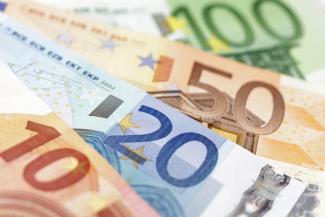Monetary union
Lessons not learned

Structural adjustment was meant to make developing countries prosper. African governments were told to reduce the role of the state, so private-sector businesses would thrive on market competition. Instead, countries became poorer and markets collapsed. When failure became undeniable, donors discovered politics, began discussing graft and demanded “good governance”.
Whenever a government could not service its debt in the 1980s and 1990s, the World Bank and the International Monetary Fund (IMF) insisted on structural adjustment. In the end, many countries needed debt relief and, in return, were told to draft and implement poverty-reduction strategies.
Some lessons were later learned in the Paris Declaration on Aid Effectiveness. Its principles include “national ownership”, “mutual accountability” and “managing for results”. In retrospect, Africans are still annoyed nonetheless about first being told to shrink states and later, after much suffering, to build institutions. Many countries still need aid today.
Concerning Greece, the EU has not heeded the structural-adjustment lessons. As was to be expected, radically cutting the national budget in an economic depression did not make the economy grow. It made it shrink. Greece's sovereign debt looks less sustainable in 2015 than it did in 2010.
This year, the donor Troika of European Commission, European Central Bank and IMF began arguing that Greece has failed to fight corruption. Wasn't it closely in touch with successive Greek governments all the time? The truth is that the Troika initially prioritised getting a grip on the deficit to restore investor confidence. The idea was that shrinking the state would trigger growth. That did not happen.
Unlike many Africans, most Europeans expect to have a say in public affairs. Two decades ago, attitudes were still more authoritarian in Africa than today. But even now, Senegal's elected President Macky Sall tells civil-society groups who oppose his Washington-inspired economic policies to leave him alone and judge him on election day. Should his policies fail, he says, they can vote him out of office.
Greeks do not have that option. They voted for change in the fifth year of economic depression, but their EU partners refuse to consider their grievances. In the name of rules, they demand that Greece keeps taking pills that have proved poisonous. Doesn't democracy mean that rules and policies are changed if they don't work?
A third bail-out is now being negotiated. The donors still insist on structural-adjustment policies. It is bizarre that nobody seems to believe they will work. The Greek prime minister and the German finance minister have expressed their doubts. According to the IMF, Greece needs debt relief, which is not on the agenda. The governments of France and Italy have long demanded a more growth-oriented approach, but that is not on the agenda either. Making matters worse, euro-zone member Greece cannot benefit from the kind of currency devaluation that was part of structural adjustment and did boost exports. Who do EU leaders think they are fooling?
The doubts and conceptual flaws reveal a lack of “mutual accountability” and “managing for results”. Nor is there “national ownership”, which in the Aid Effectiveness context is meant to be different from an indebted government saying “yes” to donor conditions. Worst of all, there is no poverty-reduction strategy. Like structural adjustment in the past, Greek bail outs have saved foreign financial institutions, not the people.
For a long time, the EU was an inspiring model for regional integration, but now the Greek drama looks most uninspiring. The weak recoveries after similar travails in Spain or Portugal are not encouraging either. Since those economies are still much smaller than before the crisis, their crisis is not over.
Mohamed Gueye is the editor-in-chief of Le Quotidien in Dakar, Senegal. Along with a group of other African journalists, he attended the High-Level Forum on Aid Effectiveness in Accra in 2008 upon invitation by the European Commission. mohagueye@gmail.com







